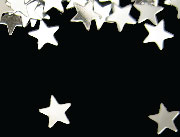The Rabbi’s Right Hand


Rebbetzin Deena Davidovich: “It’s important to be relatable that’s what people appreciate. When I go through something difficult I think I know I’m going to be able to use this to help other people. You don’t have to be perfect — whip up amazing Shabbosos be the ideal mother. I’m not a perfect mother. Do I always have the perfect answer and the perfect reaction? Probably not. But that’s okay”
"If you feel people are in a better place — both emotionally and spiritually — because of you that’s an enormous privilege and a fantastic feeling” says Rebbetzin Via Kimche of Ner Yisrael in London who’s been a shul rebbetzin for 33 years. Yet she notes being a rebbetzin is also a huge responsibility. “My husband and I talk almost every night about shul business. We try our best but it’s almost mission impossible to take adequate care of around 1 000 souls — to be like a father and mother to them — both in terms of pastoral care and spiritual leadership. The most important element is true love respect and empathy for your congregants. I daven for them especially on Rosh Hashanah and Yom Kippur.”
The job of a shul rav is fairly well-defined — he gives shiurim offers guidance paskens halachah attends life-cycle events and is there whenever his congregants need him. But what about a shul rebbetzin? Her role is far more fluid depending on her individual personality her shul’s expectations and her family and other responsibilities. Yet she too can make a difference in many people’s lives. Several shul rebbetzins share the ways in which life in the public arena can be challenging — and fulfilling.
Role Model and Friend
No matter what role a rebbetzin wants to play in her community her primary role is to serve as a support for her husband says Rebbetzin Michal Cohen of Congregation Adas Yeshurun in Chicago. “Being a rabbi is definitely the hardest job in the world. It’s 24/7. It’s very easy for a rav to get lost in the needs of his kehillah. Having a supportive wife who enables him to do what he does understands how much he has on his head and helps give him perspective is very important.”
“The demands of the rabbanus can be overwhelming ” agrees Rebbetzin Esther Reisman of the Agudath Israel of Madison in Brooklyn. “A rebbetzin has to create a kind of oasis. Despite the fact that a rabbinic home becomes something of a reshus harabim it must also serve as an oasis for the rav and a respite from the pressure.”

Be available if people want guidance or to unburden themselves or to vent. A rebbetzin should try to the best of her ability to be attuned to the members of her kehillah and sensitive to their needs — whether it’s a warm greeting an invitation or networking for a job or a shidduch.”
In addition to what she does for the community a rebbetzin is often viewed as a role model notes Rebbetzin Cohen. “We need to be transparent. People want to grow to see how someone else does it. It’s a very multifaceted position something you can do so much with.” (Excerpted from Family First Issue 560)
Oops! We could not locate your form.













